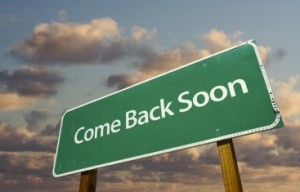My state of mind coming to Denver to speak as part of a young adult cancer conference was primarily one of perplexed amusement. When did I become a “leading expert” on adopting after cancer? I am simply one person with a story, no more or less remarkable than anyone else. I’m not even a “young adult” anymore. I am squarely ensconced in mid life. It all felt a bit absurd.
Selfishly, I approached the weekend as a chance for some “me time:” to sleep uninterrupted, to momentarily escape the demands of family, home life, routine. To drink wine and eat truffle fries in bed in a hotel room, undisturbed. To be on a plane without having to manage a squirming five year old. To let my mind relax.
But what I realized after 48 hours away from that routine, those demands, is that they ground me. They are my present. Everything I have is such a gift. I have gotten lazy, it seems, about truly, madly, deeply appreciating the miracle of my every day existence, the fact that I still exist at all.
Ten years. It’s been nearly ten years since it all began, since the world titled, knocked me sideways. A decade. That feels like a huge slice of time.
I surely can’t remember the person I was before cancer. I can scarcely remember who I was at the dawn of my recovery.
My sweet young survivor friend, a full 14 years younger than me, asked last night, after hours of eating and drinking and reflecting, “How many lives do we live?” It seems plain that for us, as survivors, there are so many, countless. We are continually reborn.
But while our rebirths are happening, there are people still living this fight. That will never change. While I have been granted the gift of moving on, of aging, the next generation keeps coming. They are young people who have been cut down. They are weakened, bald, trembling as they hold tongs trying to pluck sandwiches from the umpteenth buffet table in an airless conference hall. They are in wheelchairs, they wear masks to protect themselves from infection. They lug oxygen with them. They want to have families; they don’t know what their future holds. Some of them will die, perhaps soon, before they have the chance to realize any of their foggy visions of what might lie ahead. All of them deserve better.
At the beginning of the weekend, there was a kind of neutrality, a distance. I arrived, checked in, grabbed my badge and goodie bag, and holed up with room service and MSNBC. I wasn’t even really thinking about cancer. My story was written so long ago. All of the emotion and struggle, it’s been replaced with the every day of work, my son, chores, commuting, running with my dog, laughing with my husband at the end of another day, another day that I often unwittingly take for granted.
But then I woke, and dressed, and entered the fray, and started seeing the faces, and everything began to feel different. My heart rate quickened, ever so slightly, as I moved through the halls. What, exactly, was I doing here?
There was a certain beauty in not preparing, in simply waiting to read the room, listening to the other voices who were addressing those who were interested in this issue, this question of how to build a family after cancer. I needed help remembering what it felt like, to be raw and wondering, full of that hope tinged with uncertainty.
To share my experience, to reach back and remember, to feel the struggle of searching for my son all over again, it was huge, and unexpected. But gratifying, to look out, and see heads nodding, and eyes glistening with tears, couples holding hands. My only, limited goal, I told myself, was to deliver hope, to even one soul. Did I succeed? The heartfelt smiles, some sorrowful, the handshakes, suggested “yes.” Mission accomplished, then.
But afterwards, lingering through the conference crowds, riding the elevators, sharing meals in the cavernous ballroom, some unease returned. Slowly, unconsciously, I was absorbing it all, the prickling, anxious energy, the levity laced with deep anger and pain. It wasn’t long before I began to feel the urge to flee.
What a blessing, then, to be rescued, swept up in hugs and conversation, laughter and reflection, with long-lost friends from the most central period of my own recovery. To see us all now, seven, eights years on from our first meeting, strong and vibrant, beautiful, continuing to search and strive. Embracing these women, who, like me, in the past, seemed so wrecked from cancer, now, in the pulsating present, was this profound reminder of just how far we have all come.
It wasn’t comfortable, or easy, to come back to this place, to turn the psychic corner, after having come so far, and run smack into the old sadness, to see that sadness etched in an unending parade of young faces. But as my friend said, this is why we come back: “It’s what survivors in that same raw, whacked state need to know and see: that it gets better. It gets so much better, and it can be okay.”
Despite ending the weekend quietly rattled, hung over, eager to flee into the first bright Colorado sunlight I’d seen since touching down on Friday evening, despite the tears that ultimately came, inexplicably, as I sat on my king-sized hotel bed one last time, staring out over the capitol building, and the mountains that had finally revealed themselves, I knew, without a doubt, that I would do it again, that I will continue to try, in whatever small way, to be the light for someone fighting through this darkness, to let them know it just might be okay.

